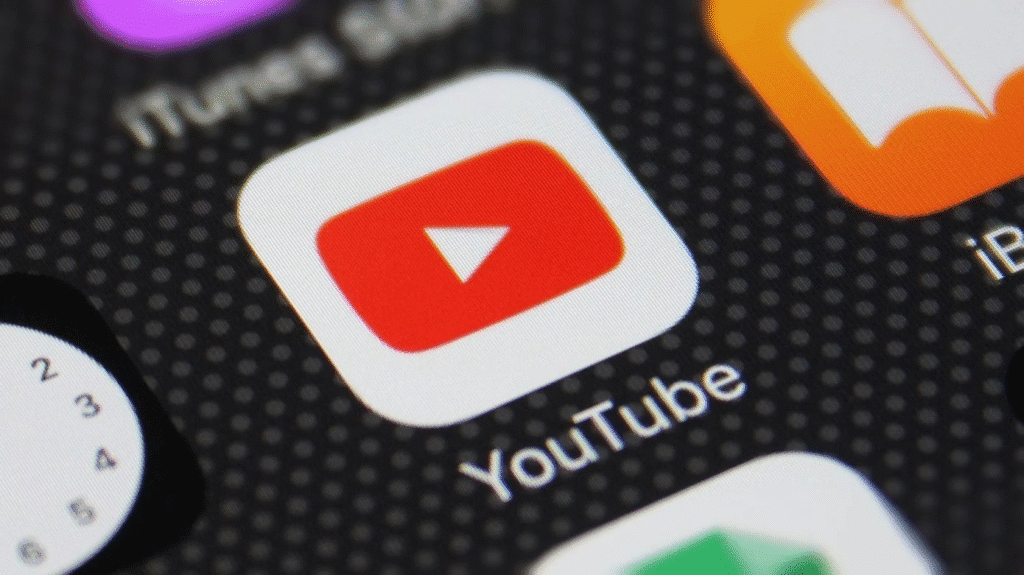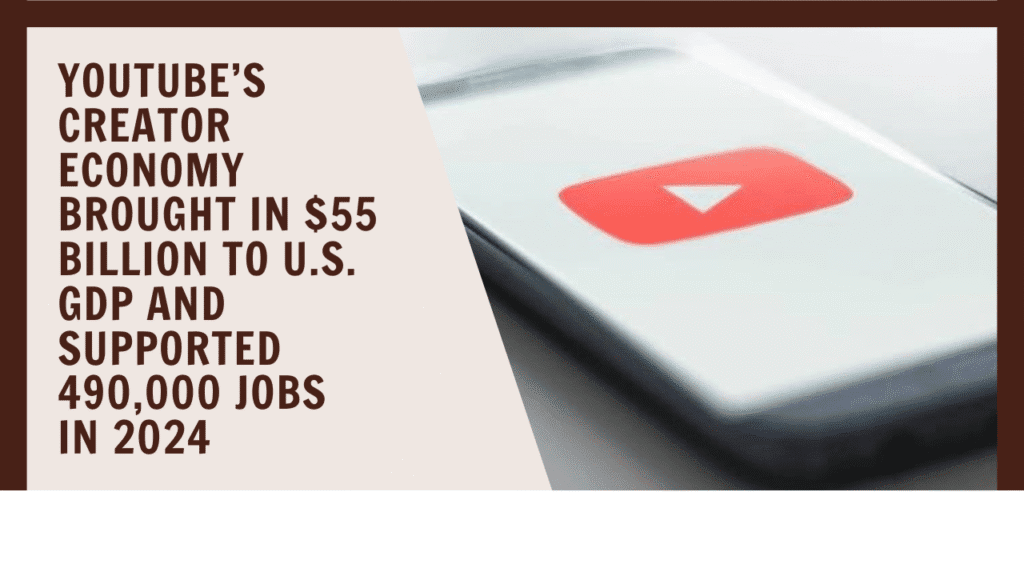YouTube isn’t just a platform for viral videos anymore—it’s a serious economic engine.
According to a new report released Tuesday by YouTube, the platform’s creator-driven ecosystem added over $55 billion to the U.S. GDP and supported more than 490,000 full-time jobs in 2024. The research, conducted by Oxford Economics, highlights how deeply embedded YouTube has become in the American workforce.
And it’s not just about the creators in front of the camera.
YouTube’s “creative ecosystem” includes video editors, assistants, publicists, and others working behind the scenes, as well as those employed at creator-focused companies like Patreon, Spotter, and Linktree. It’s a full-fledged industry—one that’s quietly grown into a powerful piece of the economy.
A Major Jump from 2022

Back in 2022, the same study showed YouTube contributed $35 billion to the U.S. GDP and supported around 390,000 jobs. In just two years, that’s a jump of $20 billion and 100,000 jobs.
That kind of growth is remarkable, especially at a time when venture capital has cooled across much of the tech world. Yet YouTube has continued to offer creators the most reliable path to making a living from content.
Thanks to the YouTube Partner Program, creators can earn 55% of ad revenue from their videos. While big names like MrBeast might dominate the headlines, mid-size creators—with solid, engaged audiences—can still earn thousands of dollars a month, often enough to go full-time.
In contrast, short-form platforms like TikTok and even YouTube Shorts are still struggling to figure out how to fairly and consistently share ad revenue with creators.
Still Fighting for Recognition
Despite the huge numbers, many creators face a frustrating reality: banks, institutions, and even the government still don’t take their careers seriously. It’s not uncommon for creators to be denied business loans or credit cards, even when they’re financially stable and profitable.
This lack of institutional support has sparked action. Just last week, U.S. Representatives Yvette Clarke (D-NY) and Beth Van Duyne (R-TX) launched the bipartisan Congressional Creators Caucus—a group aimed at acknowledging and supporting the needs of the creator economy.
As creators continue to build real careers, hire teams, and drive economic impact, the hope is that the systems around them will finally catch up.
Also Read : OpenAI Just Crossed $10 Billion in Revenue And It’s Only Getting Started

